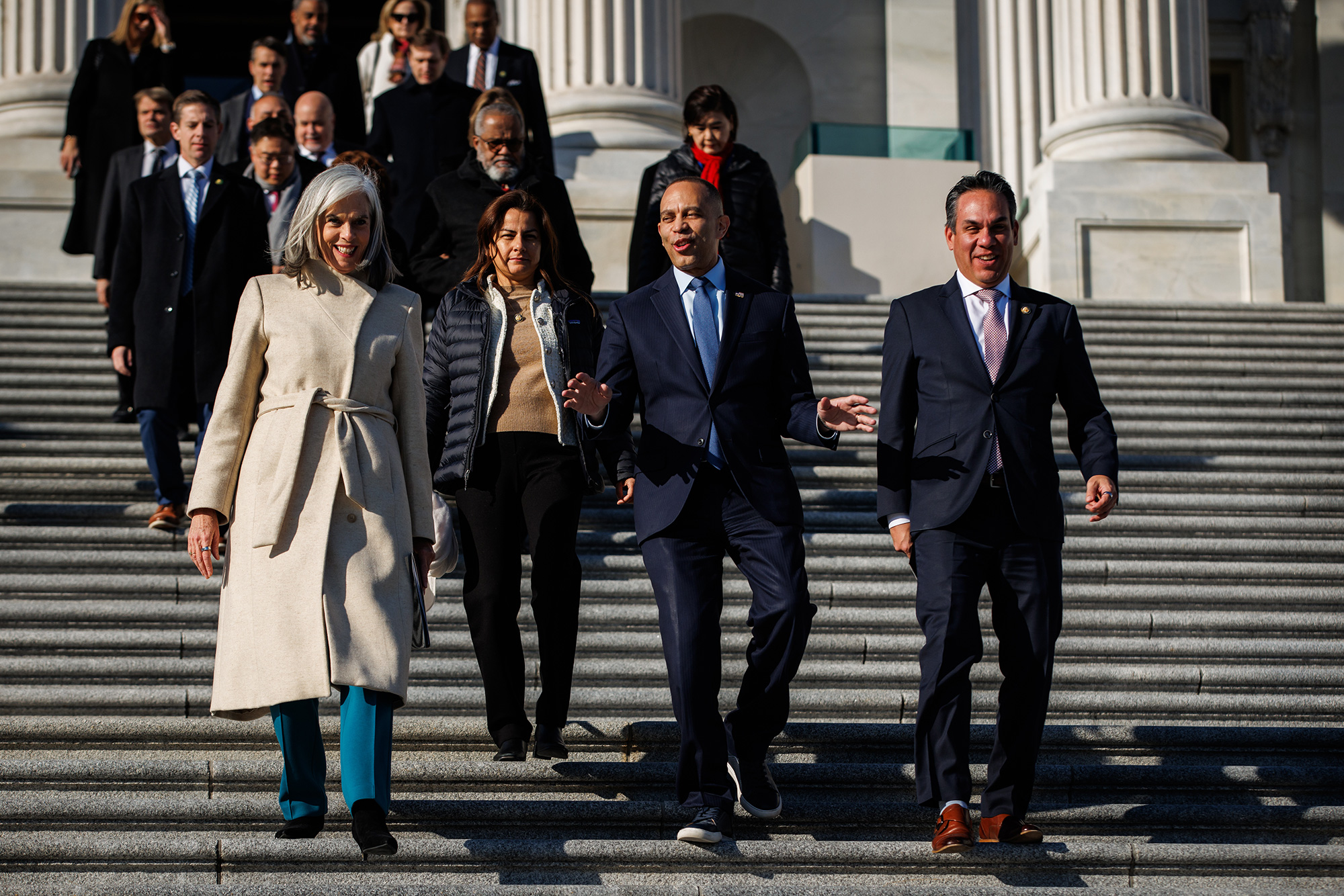From pocket rescissions to TikTok delays to a tariff freeze, three new moves show how far presidents can go when lawmakers step aside.
One of the surest trends in Washington in recent decades has been Congress giving away its own powers – and presidents of both parties stepping in to take it.
Instead of members of Congress from across the country and political spectrum working together to find solutions most Americans can agree on, most of the government’s business is increasingly being driven by the White House alone.
In the last administration, President Biden forgave large amounts of student debt through executive action, even after Democratic Speaker Nancy Pelosi said only Congress has that power. He also extended the Covid eviction moratorium without a vote from Congress, even after his own lawyers warned it wouldn’t hold up in court.
This month brought three more examples of a president assuming powers that are supposed to be the domain of Congress.
Pocket Rescissions
At the start of the month, President Trump tried something no president has pulled off in nearly 50 years: a pocket rescission.
Normally, if a president wants to cancel spending Congress already approved, they must send a rescission request and give lawmakers 45 days to vote to approve or reject it. But by waiting until the last weeks of the fiscal year, President Trump’s rescission can take effect without Congress needing to act.
The non-partisan Government Accountability Office says that violates the law, and even senior Republican officials have objected. This pocket rescission could set a new precedent for presidents clawing back funds without legislative approval.
And yet Congress is choosing to stay on the sidelines.
TikTok Ban Delayed, Again
This week, President Trump quietly pushed back the TikTok divest-or-ban deadline for the fourth time, extending it to December.
When Congress passed the TikTok ban with overwhelming bipartisan support a year and a half ago, it was supposed to take effect January 19, 2025, but allowed for one 90-day extension if a sale was imminent.
President Biden declined to enforce the ban, and President Trump has now granted four extensions for a grand total of 330 days – a clear violation of the law that the Supreme Court unanimously upheld as constitutional.
Congress has been silent – no hearings, no lawsuits, no new legislation.
Tariff Challenge Freeze
The third example came from Capitol Hill itself. The House recently approved a measure blocking any member from challenging President Trump’s sweeping new tariffs until April 2026.
Under the Constitution, Congress is responsible for setting tariffs. But throughout the 20th century, Congress passed several laws that gave the executive branch more authority over tariffs, especially for national security or emergency purposes.
Under these laws, Congress was supposed to maintain the ultimate authority to overturn the presidents’ tariffs. By passing this week’s freeze, the House effectively took that power off the table – choosing not just to cede ground on tariffs, but to bar itself from even questioning the executive.
What’s Old Is New
None of this started in 2025.
Immigration policy has followed the same script. Congress hasn’t passed a major immigration law in decades; the biggest changes have all come from the Oval Office: President Obama’s DACA program for Dreamers, President Trump’s “Muslim Ban” and “Remain in Mexico” policies, and President Biden’s continuation of Title 42 during the pandemic all came through executive action.
The big challenges America faces – a spiraling national debt, competition with China, declining confidence in the American Dream – can’t be solved by one-party rules that swing every four years. They require clear laws, hammered out by both parties, and carried out as written.
It’s time for Congress to reclaim its authority from the president and restore the checks and balances that make our system work. Durable solutions start with legislation, not executive shortcuts.
Related
Peyton Lofton
Peyton Lofton is Senior Policy Analyst at No Labels and has spent his career writing for the common sense majority. His work has appeared in the Washington Examiner, RealClearPolicy, and the South Florida Sun Sentinel. Peyton holds a degree in political science from Tulane University.




